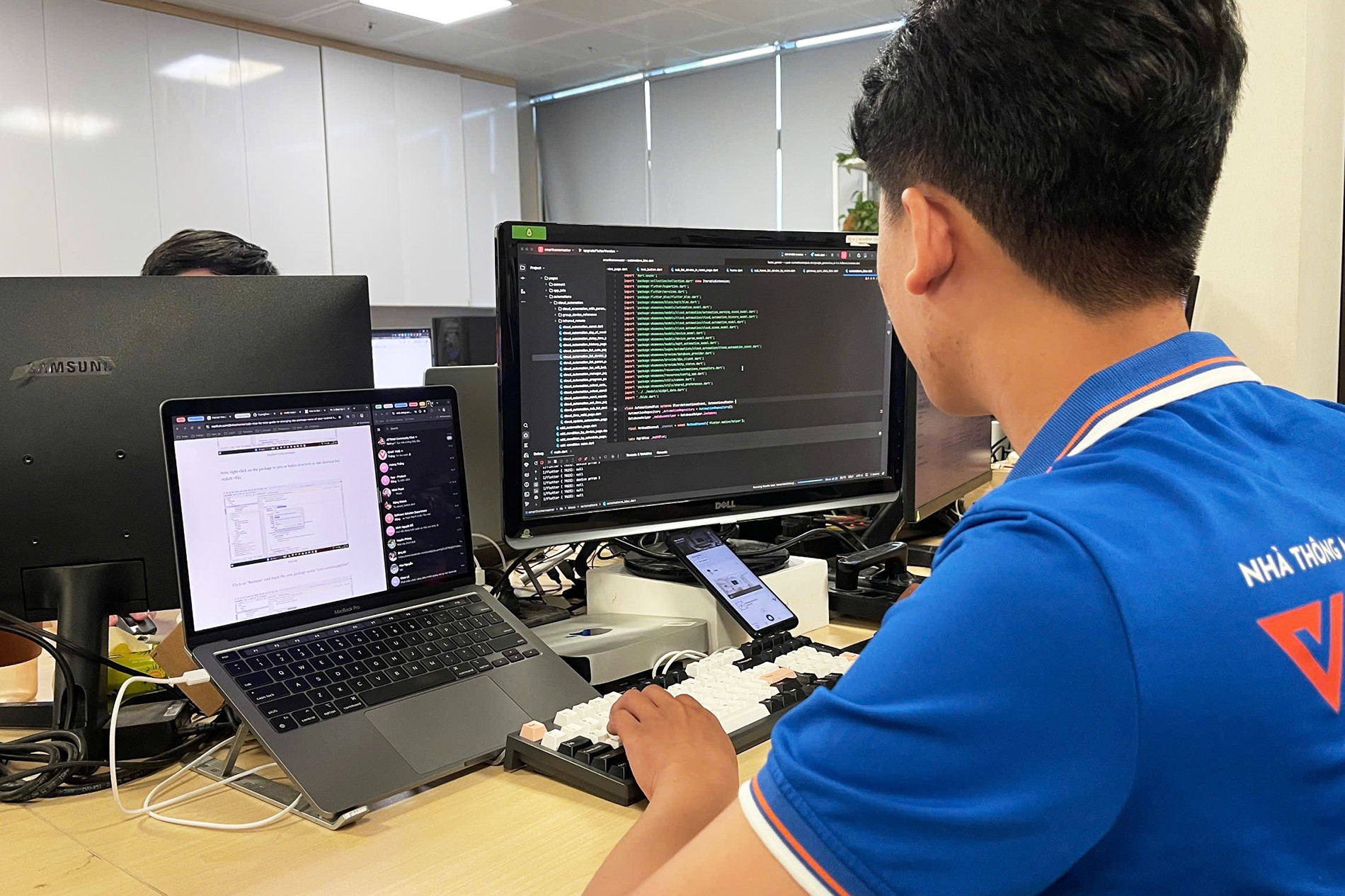
Amid the global economy, many digital technology firms have maintained high growth rates. In addition to loyal markets such as Japan, the US, and Canada, Vietnamese digital firms have begun entering new markets. Some of them have set foot in France, trying to open the door widely to the European market, while others have opened offices in Thailand and Singapore.
“Hong Kong (China) is an attractive destination with great potential. Most recently, we met representatives of Invest Hong Kong, the agency in charge of foreign direct investment, supporting foreign companies to set up legal entities and expand their business scale in Hong Kong. They said the fund could support up to $1 million to companies registering their business there,” said Nguyen Thanh Tuyen, deputy head of the Authority of Information Technology and Communications.
“Multinationals, small and medium enterprises (SMEs) and startups, when registering their operation in Hong Kong, will get the highest possible support in offices and other things. They want Vietnamese companies to come to Hong Kong to do business,” Tuyen explained.
However, most Vietnamese firms are still hesitant to enter foreign markets because of difficulties such as the legal environment and Chinese language.
Vietnamese digital firms tend to seek business cooperation in South Korea and some have gained initial success in the market.
Tuyen, who has worked with Vietnamese digital technology firms, believes that cheap labor costs remain the advantage of Vietnamese firms compared with international rivals.
Also, Vietnamese are patient, eager to learn, and sympathetic with partners. These valuable characteristics help Vietnamese firms enter choosy markets such as Japan. Not only Tokyo, but local authorities of Fukuoka and Kanagawa have said that they would open the door widely to Vietnamese firms.
Experts said that in large markets and technology powerhouses such as the US and Japan, the labor force in technology has become older and hesitant to develop new technologies. Meanwhile, Vietnamese technology firms have young workers capable of quickly adapting to new technologies. This is a great advantage which allows Vietnamese firms to expand markets and improve revenue.
However, despite the great advantages, the path for Vietnamese technology firms to enter foreign markets is thorny.
Many firms, for example, have not set up offices in foreign markets. As they have to rent hotel rooms to meet partners, it is more difficult to persuade clients to have confidence in them and agree to cooperate with them.
There are few firms like NTQ and FPT that can set up an office in Tokyo, which shows the high capability of Vietnamese firms to compete equally with tech giants.
Applying for labor visas is another difficult problem. In many foreign markets, Vietnamese workers must obtain labor visas, not tourism visas. If they don’t have work permits, they will be fined but also lose their reputation.
“I know that many companies want foreign experts to come to Vietnam to work with Vietnamese teams, and want to bring their Vietnamese teams to foreign countries. In both of these cases, companies have to spend a lot of time to apply for labor visas for staff,” he said.
To solve the problem, technology firms need support from the government, Ministry of Foreign Affairs and agencies and organizations.
Also, Vietnamese digital technology firms need to further improve their foreign language skills and their flexibility to adapt to local cultures, Tuyen said.
Tech firms need support
To encourage Vietnamese digital technology firms to go abroad, the "Make in Vietnam Digital Technology Product 2024" Award organized by MIC continues to give awards in the "Outstanding digital technology products for foreign markets" category.
For the second time honoring the firms that export technology products, MIC has re-defined Vietnamese technology firms.
“Vietnamese technology firms include firms established overseas where Vietnamese people own at least a 51 percent stake (in the previous year, only firms established in Vietnam were honored).
Since the “Make in Vietnam” program was launched by MIC in 2020, Vietnamese tech firms have begun paying more attention to building images and brands in international markets.
NTQ Solution, for example, has developed more than 20 ‘Made by NTQ’ products, and foreign partners have praised the ‘Made by FPT’ technology ecosystem.
Binh Minh